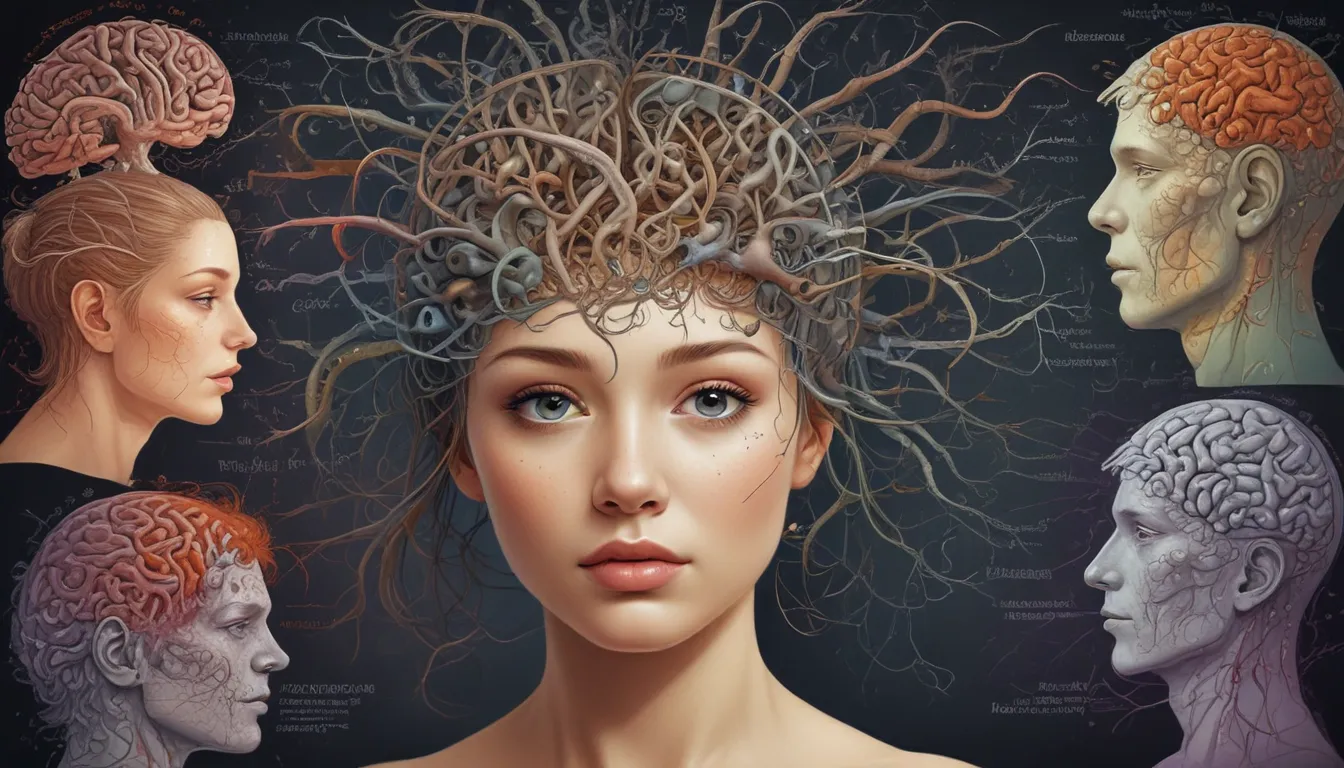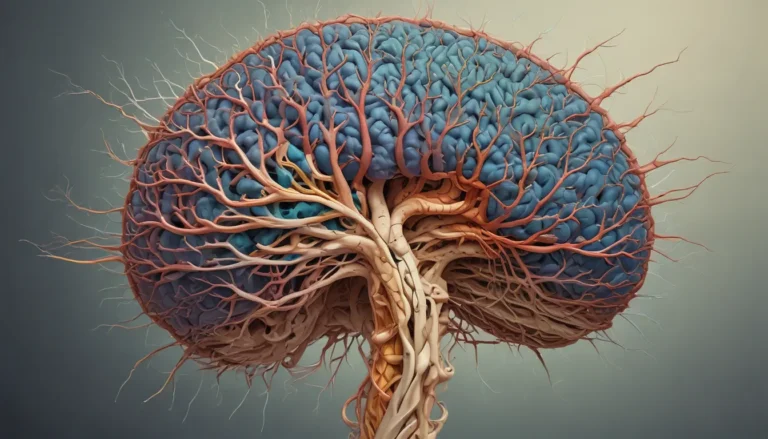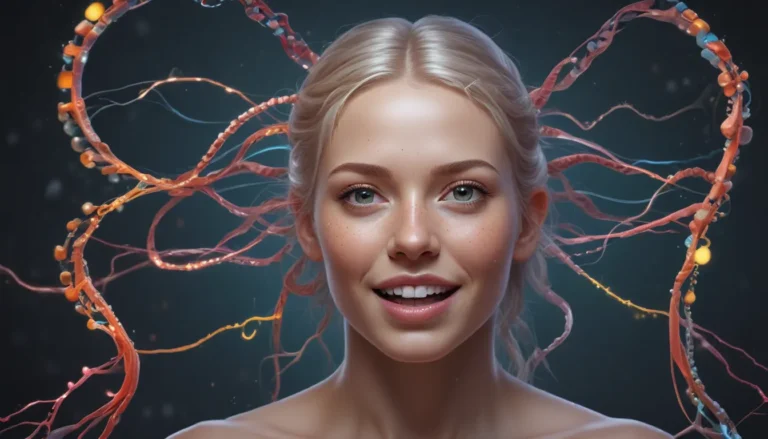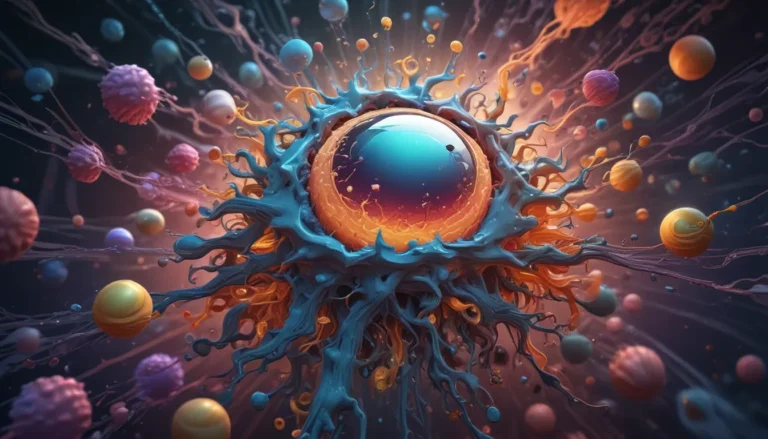A Note About Images: The images used in our articles are for illustration purposes only and may not exactly match the content. They are meant to engage readers, but the text should be relied upon for accurate information.
Welcome to the intriguing world of neurodevelopmental disorders. These complex conditions impact the development of the brain and nervous system, affecting cognition, behavior, and social interaction. From autism spectrum disorder to attention deficit hyperactivity disorder (ADHD), these disorders have a significant impact on individuals and their families. In this article, we will uncover 20 unbelievable facts about neurodevelopmental disorders that will deepen your understanding of these conditions and the challenges they present. Whether you are a healthcare professional, a parent, or simply curious about neuroscience, these facts will shed light on the unique characteristics and experiences associated with neurodevelopmental disorders.
Key Takeaways:
- Neurodevelopmental disorders, like autism and ADHD, impact millions worldwide, affecting cognitive, social, and motor skills. Early intervention and support are crucial for improving outcomes and reducing the impact of these conditions.
- Embracing neurodiversity and creating supportive environments are essential for individuals with neurodevelopmental disorders. Ongoing research is advancing our understanding, paving the way for improved interventions and support systems.
Neurodevelopmental Disorders on a Global Scale
Neurodevelopmental disorders, including autism, ADHD, and intellectual disabilities, affect the lives of millions of individuals globally. These conditions disrupt the development of the nervous system, resulting in challenges related to cognitive, social, and motor skills.
Autism Spectrum Disorder: A Common Diagnosis
Surprisingly, 1 in 54 children is diagnosed with autism spectrum disorder, underscoring the significant impact of this neurodevelopmental disorder on individuals and their families.
ADHD Beyond Childhood
Contrary to popular belief, attention deficit hyperactivity disorder (ADHD) can persist into adulthood, presenting ongoing challenges with attention, impulsivity, and hyperactivity that affect daily life.
Language Delay in Neurodevelopmental Disorders
Children with neurodevelopmental disorders frequently experience delays in language development, manifesting as difficulties in speech, comprehension, and expression.
The Heterogeneity of Neurodevelopmental Disorders
Neurodevelopmental disorders encompass a wide array of conditions with varying symptoms and severity levels. Each individual presents unique challenges and strengths, necessitating personalized interventions and support.
The Critical Role of Early Intervention
Timely identification and intervention are essential in supporting individuals with neurodevelopmental disorders. Access to appropriate therapies and support services can significantly improve outcomes and lessen the impact of these conditions.
Debunking Misconceptions
Contrary to outdated beliefs, neurodevelopmental disorders stem from biological factors, not poor parenting or social issues. These conditions result from a complex interplay of genetic and environmental influences.
Gender Disparities in Diagnosis
Neurodevelopmental disorders are often diagnosed more frequently in boys than in girls, leading to underdiagnosis and delayed intervention in females. Increased awareness and understanding are essential.
Unveiling the Potential of Intellectual Disability
Individuals with intellectual disabilities possess unique abilities and strengths. With the right support and accommodations, they can lead fulfilling lives and contribute meaningfully to their communities.
Addressing Comorbidities
Individuals with neurodevelopmental disorders often experience co-occurring mental health conditions, such as anxiety or depression. Comprehensive treatment must address these additional challenges.
Celebrating Neurodiversity
Neurodiversity celebrates the natural variations in neurological functioning, including those associated with neurodevelopmental disorders. It fosters acceptance, understanding, and appreciation for diverse ways of experiencing the world.
The Impact of Nutrition
Research indicates that prenatal and early childhood nutrition may influence the development of neurodevelopmental disorders. Ensuring a balanced diet during critical stages of growth promotes overall brain health.
Innovative Therapies for Positive Outcomes
Behavioral interventions, speech therapy, occupational therapy, and assistive technologies significantly improve the quality of life for individuals with neurodevelopmental disorders. Embracing new approaches leads to positive outcomes.
Economic Challenges
The societal and economic burden of neurodevelopmental disorders is substantial, highlighting the need for increased funding and resources to address healthcare, education, and social support services effectively.
Lifelong Conditions
While symptoms may evolve over time, neurodevelopmental disorders are lifelong conditions. With appropriate support, individuals can thrive and achieve their full potential.
Environmental Influences
Exposure to environmental factors, such as toxins or maternal infections during pregnancy, can heighten the risk of neurodevelopmental disorders. Understanding these influences aids in implementing preventative measures.
A Multidisciplinary Approach
Effective management of neurodevelopmental disorders necessitates collaboration among various professionals, including doctors, therapists, educators, and social workers. This holistic approach ensures comprehensive care.
Unveiling Adult Challenges
Although often associated with childhood, neurodevelopmental disorders continue to impact individuals into adulthood, requiring ongoing support and recognition of their needs.
Creating Supportive Environments
Inclusive and supportive environments positively impact individuals with neurodevelopmental disorders, ensuring accessibility, understanding, and acceptance in schools, workplaces, and communities.
Advancements in Research
Ongoing research enhances our understanding of neurodevelopmental disorders, leading to improved diagnostic tools, interventions, and support systems to serve individuals with these conditions effectively.
Concluding Thoughts
Neurodevelopmental disorders offer a captivating study into the complexities of the human brain. As research and understanding progress, we uncover astounding facts about these conditions, from prevalence and impacts to causes and treatments. By promoting awareness and research, we can better support individuals with neurodevelopmental disorders and their families, fostering compassion and understanding for all.
Frequently Asked Questions
-
What are neurodevelopmental disorders?
Neurodevelopmental disorders are conditions that affect the development of the nervous system, leading to impairments in cognitive, social, and emotional functioning. -
How common are neurodevelopmental disorders?
Neurodevelopmental disorders are relatively common, with an estimated 1 in 6 children worldwide affected by some form of these conditions. -
What causes neurodevelopmental disorders?
While the exact causes are not fully understood, factors such as genetic mutations, prenatal exposure to toxins, and environmental influences are believed to play a role. -
Are neurodevelopmental disorders treatable?
While there is no cure, therapies, interventions, and support services can help individuals manage symptoms and improve quality of life. -
Can neurodevelopmental disorders be diagnosed in adulthood?
Yes, neurodevelopmental disorders can be diagnosed in adulthood, with early detection and intervention preferred. -
Is research ongoing in neurodevelopmental disorders?
Yes, ongoing research aims to deepen our understanding of these conditions to develop improved strategies for diagnosis and treatment. -
How can I support individuals with neurodevelopmental disorders?
Supporting understanding, advocating for inclusive environments, and raising awareness can positively impact individuals with neurodevelopmental disorders.
Neurodevelopmental disorders are a fascinating field with profound implications, both scientifically and socially. By delving into the intricacies of brain development and the challenges faced by individuals with these conditions, we broaden our understanding and compassion for those affected. As we continue to explore and research neurodevelopmental disorders, we contribute to a more inclusive and supportive society for everyone.






